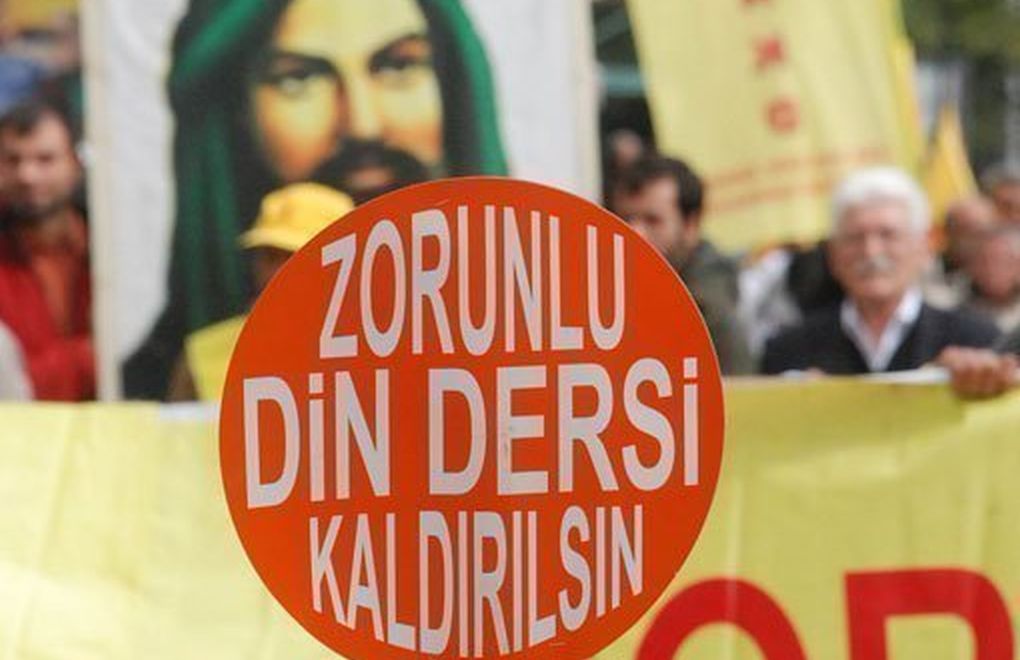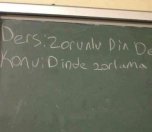"Abolish compulsory religion class"
Click to read the article in Turkish
Turkey's compulsory religion classes violated the European Convention on Human Rights (ECHR), the Constitutional Court has ruled.
The ruling comes after the 13-year long legal struggle of Hüseyin El, who wanted her daughter, Nazlı Şirin El, to be exempted from religion classes.
In 2009, El applied to Eskişehir Havacılar Primary School, demanding her daughter be exempted from culture of religion and knowledge of ethic classes. In accordance with the opinion received from the General Directorate of Primary Education of the Ministry of National Education, the school principal rejected the request.
In the opinion of the general directorate, which was attached to the school's response to El, it was stated that Christian and Jewish citizens of Turkey can be exempted from religion classes provided that they certify that they belong to one of these religions.
"Religion" section on ID card
After that, El removed religious information from his and his daughter's ID cards, which is by default assigned as "Islam" for everyone except for officially recognized minorities in Turkey. However, this did not make her daughter exempt from religion classes, either.
El then filed a lawsuit against the Ministry of National Education and the Governor's Office of Eskişehir. He stated that the class was not in compliance with his religious or philosophical beliefs and her daughter should be exempted in accordance with the implementation of freedom of religion and belief. Also, he stated, the content of the class was based on a specific understanding of religion and was not aimed at objective and rational education.
The Ankara 1st Administrative Court found El right, citing a 2007 decision of the European Court of Human Rights (ECtHR) about an Alevi student and her father's application against the compulsory religion class.
In its ruling, the court emphasized that religious education "depends only on the will of the individuals and legal representatives of minors" and making this class compulsory was illegal.
However, after the appeal of the ministry and the governor's office, the 8th Penal Chamber of the Council of State, the country's top administrative court, overturned the verdict because "it was against the legislation."
The chamber based its ruling on an expert report that the class in question had become "pluralistic, objective and rational" after an amendment in the curriculum in the 2005-2006 school year.
Application to the Constitutional Court
Lawyer Esra Başbakkal filed an individual application with the Constitutional Court in 2014 in the name of Hüseyin El and Nazlı Şirin El.
In the petition, the lawyer noted that the student had failed her class, her school report had not been handed to her and she had to change her school because of the moral pressures of the school administration, teachers, and students.
The fact that the only option for exemption from the religion class was being a Christian or a Jew was against the Constitution, the lawyer argued. It was also against the 2007 ECtHR verdict, she said.
The Constitutional Court examined the application on April 7, Kısa Dalga reported.
The top court concluded that parents' right to make their children receive education in accordance with their religious and philosophical beliefs, which was guaranteed under the fourth paragraph of article 24 of the Constitution, was violated.
The court will announce its detailed ruling later.
Paragraph 4 of article 24 of the Constitution: No one shall be allowed to exploit or abuse religion or religious feelings, or things held sacred by religion, in any manner whatsoever, for the purpose of personal or political interest or influence, or for even partially basing the fundamental, social, economic, political, and legal order of the State on religious tenets.
(RT/VK)








